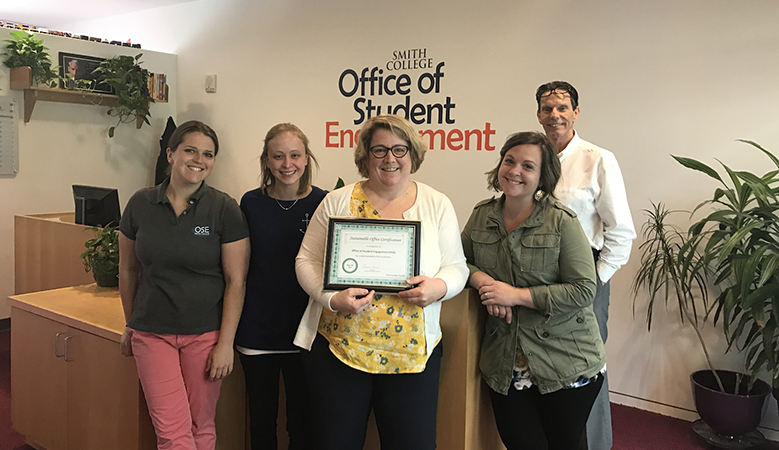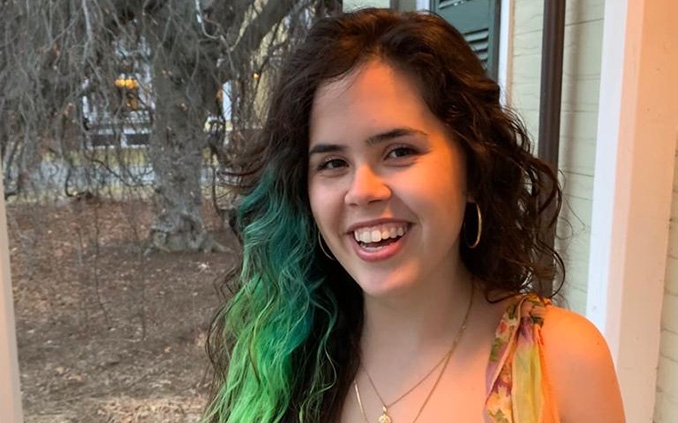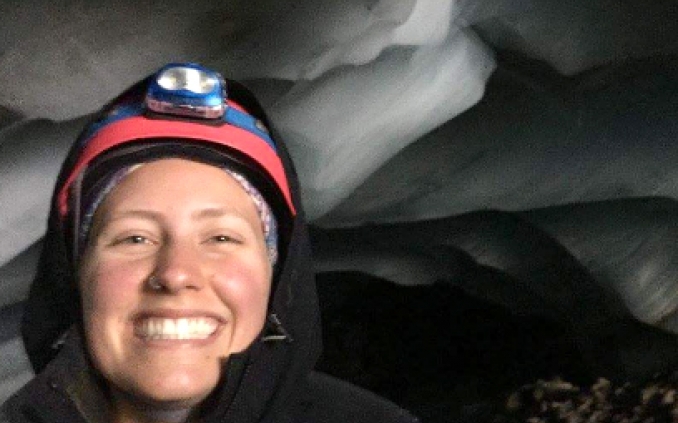Get Involved
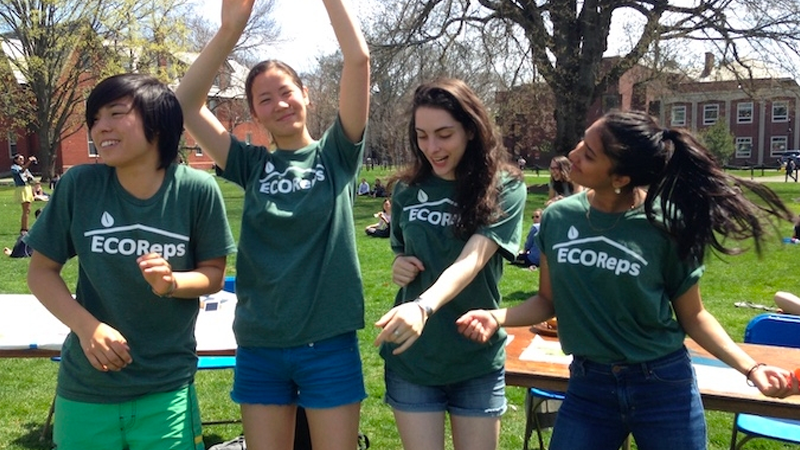
Opportunities for Students
Studying Sustainability
Thanks to Smith’s open curriculum and breadth of classes, it’s easy for students to take sustainability focused courses, no matter their major. Students can pick a major with an environmental focus from several departments, select a unique minor or concentration, or choose sustainability-related courses offered throughout the curriculum, including classes in anthropology, architecture, English language and literature, government and physics.
Browse our Academics page for more details on majors, minors, concentrations, and specific courses.
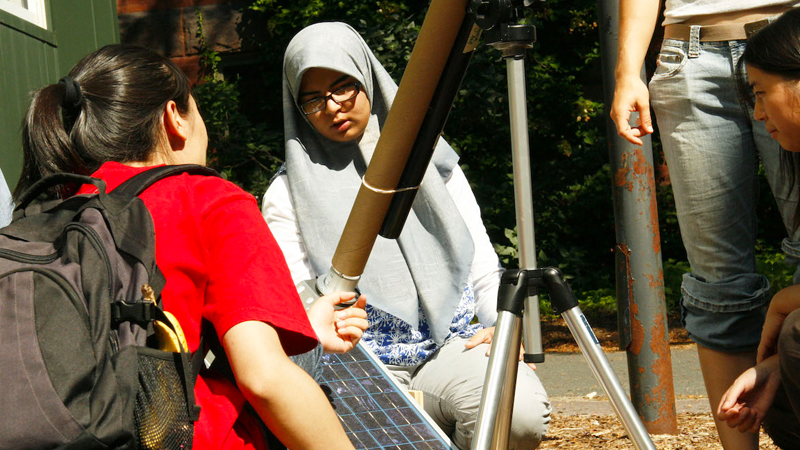
FAQ
How can I explore my interests around environmental issues if I don't want to major in Environmental Science and Policy?
There are many ways to explore your interests without majoring in Environmental Science and Policy. Courses throughout many of Smith's major are centered around issues related to the environment and sustainability. You can also choose to do an environmental concentration or find a co-curricular way to get involved.
What kind of job will I be able to get if I study something related to the environment and sustainability?
Our alums find jobs across many fields, in diverse areas of speciality. From consulting for renewable energy projects to food justice advocacy, the possibilities are expansive. You can check our @SustainableSmith instagram page for some profiles of alums and also see here for a spotlight on a recent alum.
Can I talk to someone who can tell me more?
Yes! Email ceeds@smith.edu anytime to get connected.
On-Campus Jobs
Work Study
Many units across the college host academic year and summer jobs that intersect with sustainability including the Botanic Gardens, the Design Thinking Initiative, CEEDS, and the Science Center. Be sure to follow the Sustainable Smith social media pages @SustainableSmith and sign up for the ENVIRO listserv at enviro@smith.edu to stay up-to-date on these opportunities.
Spot Jobs
Throughout the year CEEDS will have spot jobs - mostly for zero-waste event workers. You will find them on Workday and they will be advertised through the ENVIRO listservs and social media.
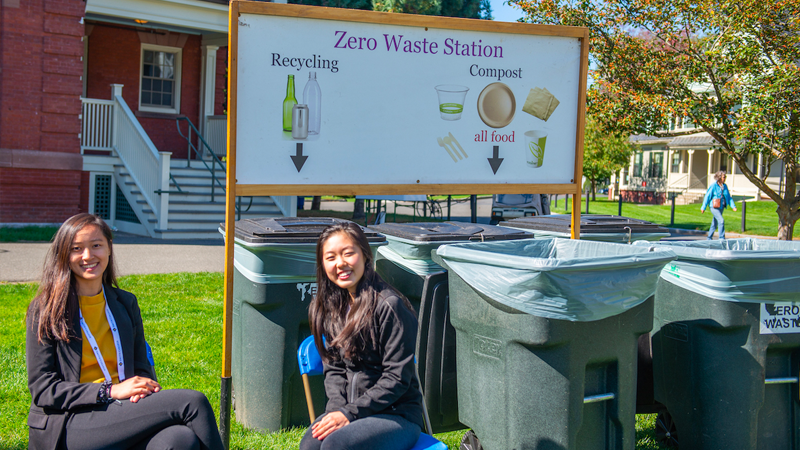
Off-Campus Jobs
Praxis stipends are designed to help students pursue opportunities that expand their education but which cannot or do not pay a summer salary. These internships help students build on their academic studies, make decisions about their careers and acquire the experiences and skills desired by employers and graduate schools.
You can also find opportunities through the Student Employment Office and The Lazarus Center for Career Development.
Student Research in Departments (STRIDE) Program
Through Smith’s Student Research in Departments (STRIDE) Program, high-achieving students during their first two years are teamed up with Smith faculty as paid research assistants.
Every year, the Clark Science Center offers stipends for summer research with faculty mentors. You can learn more about the program and how to apply here.
Our 260-acre field station is your playground for environmental research! Students are actively engaged in research at MacLeish related to the hemlock woolly adelgid, groundwater quality, precipitation through fall, the mitigation of invasive species such as multiflora rose and oriental bittersweet, and historic use of the property. Fill out the research proposal form here.
Special Studies
Students interested in exploring a topic, issue or research project independently may propose a Special Studies course with a faculty adviser. Special studies offer students the opportunity to delve into a topic that may not be covered in courses, pursue in greater depth a project begun in a class or in a summer internship, or undertake a new project. The Center for the Environment, Ecological Design, and Sustainability (CEEDS) can help connect you to professors and support your research interests related to the environment and sustainability. Research projects do not need to be science or lab-based. Past projects include creating the campus move-out program now known as SmithCycle and conducting research to understand how our Farmington Solar Project might impact the local community.
NOAA College-Supported Summer Internship Program
Smith’s Environmental Science and Policy Program and the National Oceanic and Atmospheric Administration (NOAA) have partnered to provide internships for Smith students since 1999. This program connects students with 10-week summer internships in conservation science, coastal ecology, resource policy and management, environmental education and science communication. Smith students have interned at numerous NOAA offices, labs and field sites across the country. Interns work side by side with NOAA scientists, policy makers and other staff to address current coastal and marine issues.
Summer internships have a flexible start date. Fellowship stipends of $6,000 are provided by the Agnes Shedd Andreae 1932 Research Internship Fund to support these 10-weeks internships. The fellowships are for Smith College students only. Normally NOAA posts the current list of internships in February each year.
For the most up-to-date more information about the NOAA College-Supported Internship Program and application, visit the ES&P website.
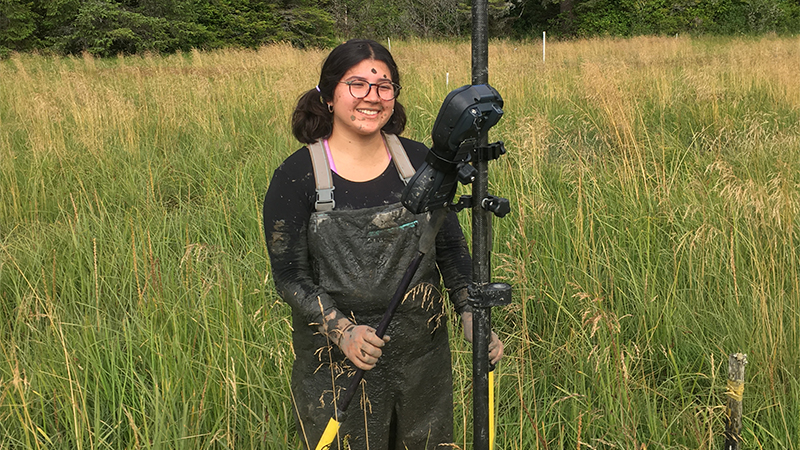
Student Organizations
Smithies are passionate about sustainability and environmental justice. Through student organizations, they teach their peers about the environment and start initiatives to make our campus more sustainable. They also work with other colleges and groups to work on issues that impact the local community.
Check the Smith Social Network for an up-to-date list of active student organizations. Take a look below at a few examples of what students have been working on (and how to get involved)!
The Bike Kitchen
The Bike Kitchen is a co-op organization working for bike accessibility for Smithies. We strive to educate and provide for a diverse community. People of all backgrounds (especially with no experience!) are invited to learn how to take apart, rebuild, and maintain bikes. We believe this encourages biking on campus and empowers students to maintain their bikes on their own.
We have weekly open hours during the school year. Next year we hope to hold more safety workshops and maintenance demos.
You can reach us at bikes@smith.edu during the school year.
Check out our Instagram (@smith.bikekitchen) to learn more!
Food Rescue Network (FRN)
FRN works toward reducing systemic food waste at Smith and minimizing the food insecurity of vulnerable communities of Northampton. We collect an average of 100lbs of surplus food from dining halls every day and donate it to Manna Community Kitchen at St. John's Episcopal Church. Manna then distributes the food to food insecure community members through their daily meal programs.
If you are interested in reducing food waste and food insecurity, reach out to foodrescue@smith.edu. See what we've been up to on our Instagram page (@smithfoodrescue)!
Elected Positions
Smith has multiple elected positions that focus on sustainability in our community. Through these roles, you can make a difference in your house community and inspire campus-wide change!
Eco-Reps
Eco-Reps are an elected house position and engage the diverse student body of Smith in conversations and action around the broad economic and social aspects of sustainable living. They monitor recycling, composting, energy usage and other sustainable operations in their respective houses.
SGA Sustainability Committee
This student government committee works to inform and involve students in practicing sustainable behaviors around key focus areas, such as waste and food, and educates the student body on what the college is doing as it relates to sustainability.
Stay In-The-Know
Throughout the school year, students can participate in a wide array of events, including conferences, exhibitions, film screenings, fairs, walks and more. You can find a list of events on this calendar.
Make sure to sign up for the ENVIRO mailing list by sending an email to enviro@smith.edu to hear about environmental student work, educational presentations, job opportunities, and ways to get involved on campus!
Follow our social media pages @SustainableSmith to stay in-the-know about sustainability initiatives at Smith, collaborations with the Design Thinking Initiative and other campus partners, internships in CEEDS, joining clubs, the house eco-reps program, and other opportunities!
Sustainable Office Self-Certification Program
The Sustainable Office Certification Program is designed to recognize, support and highlight offices that are engaging in sustainable practices. Certification is based on a checklist of activities and behaviors that progress from level one to level three. The first level covers energy conservation and waste reduction practices many offices are already using—or that are easy to start—such as turning off lights and projectors when they are not in use. Practices become more challenging at the upper levels, and include using reusable mugs and water bottles, and taking notes electronically rather than on paper.
